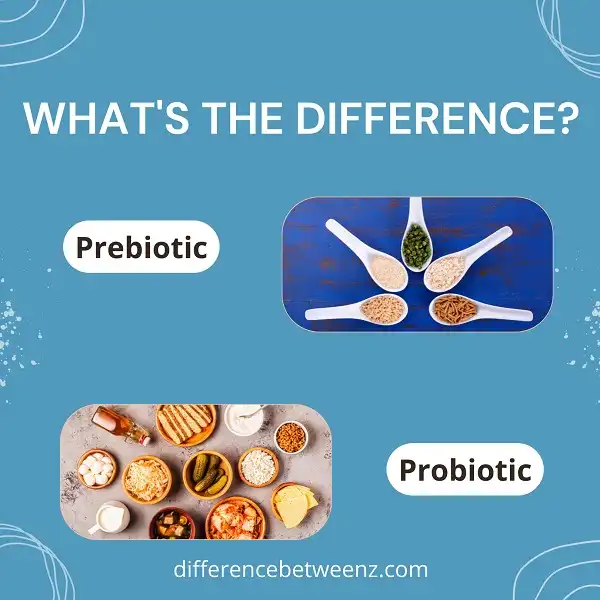Prebiotics and probiotics are two types of dietary supplements that are often confused with one another. While they have some similarities, there are also some key differences between them. This article will help to clear up any confusion about these two terms and explain the benefits of each.
What is a Prebiotic?
Prebiotics are a type of dietary fiber that promote the growth of healthy bacteria in the gut. Unlike probiotics, which are live bacteria that can be taken in supplement form, prebiotics are nondigestible carbohydrates that serve as fuel for gut microbes. Prebiotics are found in a variety of plant-based foods, including onions, garlic, bananas, and legumes. They can also be added to processed foods and beverages, such as yogurt, cereal, and energy bars. Prebiotics are believed to have a range of health benefits, including improved digestion, a strengthened immune system, and better mineral absorption. While more research is needed to confirm these effects, prebiotics are generally considered safe for most people.
What is a Probiotic?
Probiotics are live microorganisms that have a number of health benefits when consumed. They are often called “good” or “helpful” bacteria because they help keep the gut and digestive system healthy. Probiotics are found naturally in some fermented foods, such as yogurt, sauerkraut, and kimchi.
- Probiotics can also be taken as supplements. Probiotic supplements usually contain one or more strains of lactic acid bacteria, such as Lactobacillus or Bifidobacterium. Probiotics are sometimes used to treat diarrhea, inflammatory bowel disease, and irritable bowel syndrome.
- Probiotics may also help prevent vaginal yeast infections and urinary tract infections. Probiotics are generally considered safe for most people, but side effects can occur.
- Probiotics should not be taken by people who have weakened immune systems or who are taking certain medications. Probiotics should be taken with caution if you have a history of allergies or autoimmune diseases. Consult with your healthcare provider before taking probiotics to make sure they are right for you.
Differences between Prebiotic and Probiotic
Prebiotics and probiotics are both types of dietary supplements that can promote gut health. Prebiotics are substances that provide food for the beneficial bacteria in the gut, while probiotics are live cultures of those same bacteria.
- Both prebiotics and probiotics are found in a variety of foods, including yogurt, sauerkraut, and kimchi. Prebiotic supplements are also available in powder or capsule form. Probiotic supplements usually contain one or more strains of Lactobacillus or Bifidobacterium bacteria.
- While both prebiotics and probiotics offer health benefits, they have different mechanisms of action and may not be equally effective for everyone. For example, some studies have shown that prebiotics can help increase the population of Bifidobacteria in the gut, while others have found no effect.
- Probiotics, on the other hand, have been shown to be effective at restoring the balance of gut bacteria after taking antibiotics. Ultimately, more research is needed to determine the best way to use prebiotics and probiotics to promote gut health.
Conclusion
The Bottom Line: Probiotics are live microorganisms that, when ingested in adequate amounts, confer a health benefit on the host. Prebiotics are non-digestible carbohydrates that selectively stimulate the growth and activity of bacteria in the colon. There is some overlap between pre-and probiotics, but they are not one and the same. To date, there is only limited evidence to support any specific health benefits of prebiotics over probiotics or vice versa.


